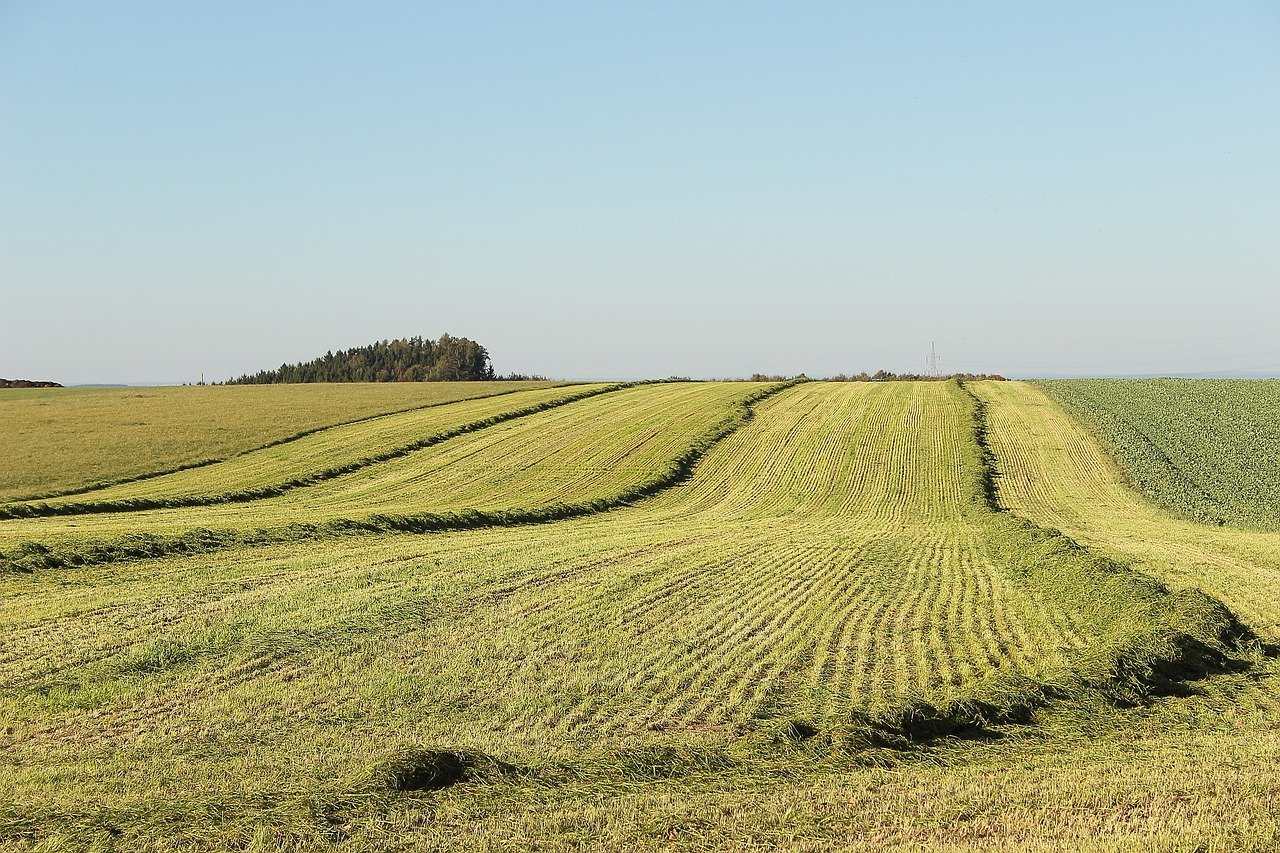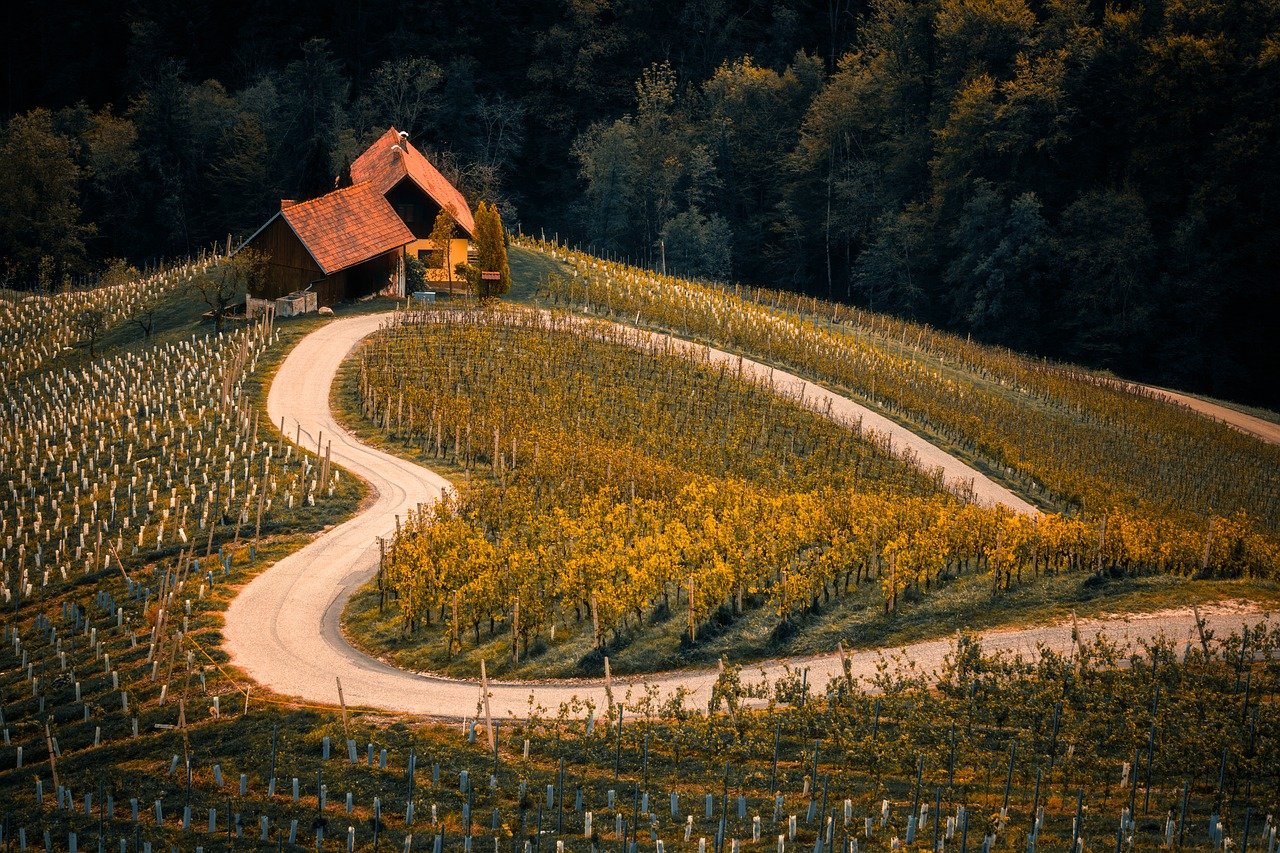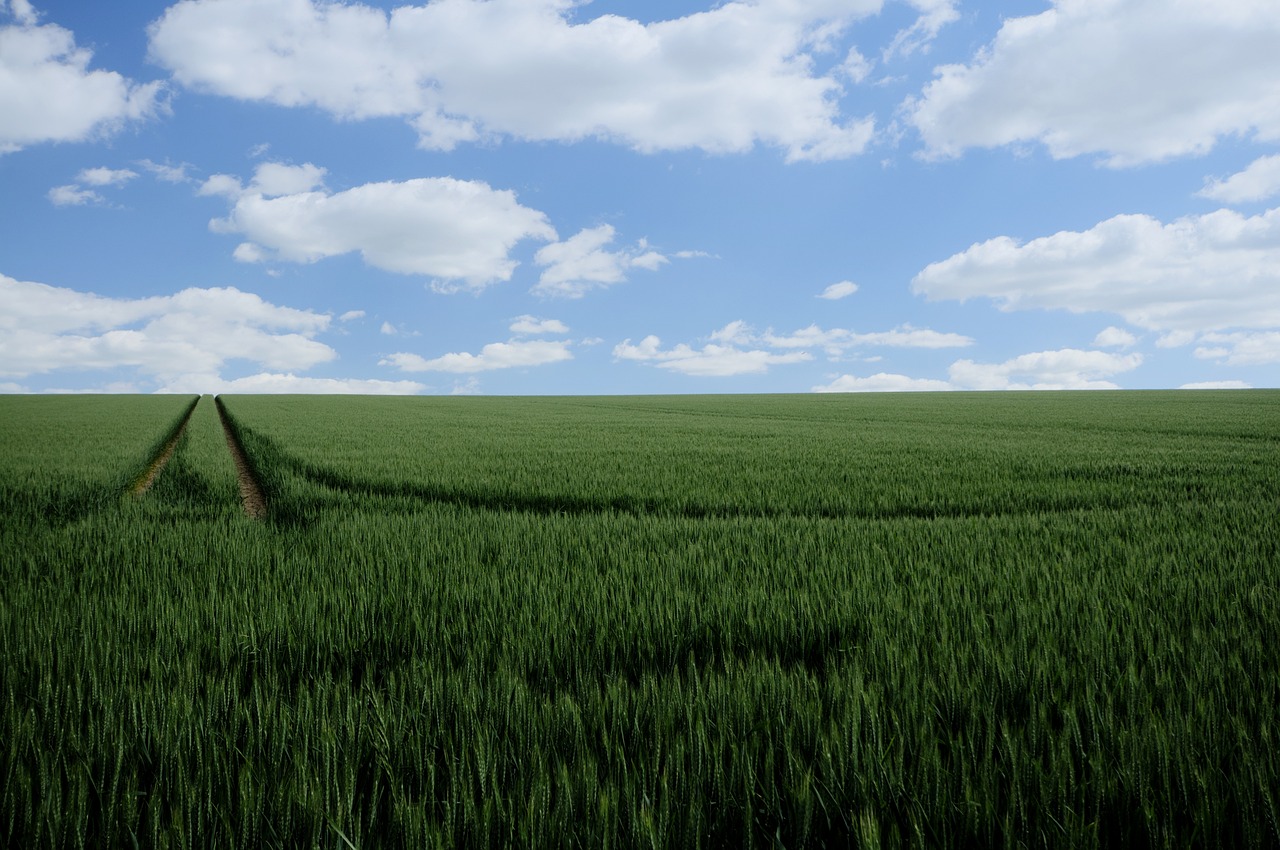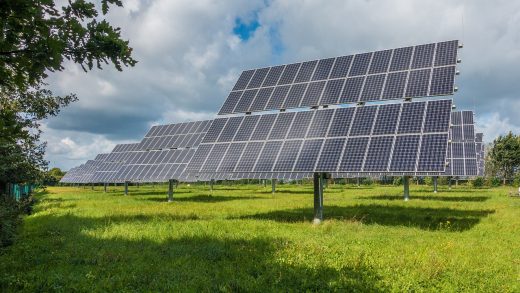In today’s rapidly evolving world, the intersection of artificial intelligence and sustainable farming practices is nothing short of revolutionary. Imagine a landscape where technology meets tradition, enhancing agricultural productivity while safeguarding our planet. This article delves into how AI technologies are not just tools, but vital allies for farmers aiming to promote environmental stewardship and resource conservation.
The agricultural sector is facing unprecedented challenges, from climate change to resource scarcity. As farmers grapple with these issues, AI emerges as a beacon of hope. By leveraging advanced algorithms and data analytics, AI can transform farming practices, ensuring that they are both efficient and sustainable. The question is, how can we harness this potential?
Consider precision agriculture, which utilises AI to analyse vast amounts of data from various sources. This approach allows farmers to optimise crop yields, reduce waste, and improve resource management through targeted interventions and real-time decision-making. With the right tools, farmers can now make informed choices that lead to healthier crops and a more sustainable future.
Moreover, AI-driven technologies like drones and satellite imagery provide critical insights into crop health, soil conditions, and pest infestations. These innovations enable farmers to intervene promptly, reducing the reliance on harmful chemicals and promoting sustainable practices. For instance, by monitoring soil health through AI, farmers can analyse nutrient levels and moisture content, leading to better soil management practices.
However, the journey towards fully integrating AI into agriculture isn’t without its hurdles. High costs, data privacy concerns, and the need for comprehensive training are significant challenges that need addressing. Yet, as we look to the future, the promise of AI in sustainable farming is bright, with ongoing advancements and a growing awareness of environmental issues driving innovation.
In conclusion, the synergy between AI and sustainable farming practices offers a pathway to a more resilient agricultural system. By embracing these technologies, farmers can not only enhance productivity but also ensure that our farming practices are sustainable for generations to come. For further insights, check out Agriculture Technology.
The Role of AI in Precision Agriculture
This article explores the intersection of artificial intelligence and sustainable farming practices, highlighting how AI technologies can enhance agricultural productivity while promoting environmental stewardship and resource conservation.
In today’s fast-paced world, precision agriculture is becoming a game changer for farmers. By harnessing the power of artificial intelligence, farmers can now analyse vast amounts of data to make informed decisions that can significantly boost their crop yields. Imagine having a digital assistant that not only tells you when to plant but also predicts the best time to harvest! This is the magic of AI in agriculture.
Utilising AI technologies allows farmers to optimise their resource management effectively. For instance, with the help of data from sensors, drones, and satellite imagery, farmers can monitor their fields in real-time. This means they can identify which areas need more water or fertiliser and apply it precisely where it’s needed, minimising waste. The result? A more sustainable approach to farming that conserves resources and maximises productivity.
Here’s how AI is reshaping precision agriculture:
- Data Analysis: AI algorithms analyse weather patterns, soil conditions, and crop health to provide actionable insights.
- Predictive Analytics: By forecasting potential issues such as pest infestations, farmers can act before problems escalate.
- Resource Allocation: AI helps in determining the optimal amount of water and nutrients needed for different crops.
However, it’s important to note that while the benefits are substantial, there are challenges to consider as well. The initial investment in AI technology can be high, and farmers may require training to adapt to these new tools. As we move forward, addressing these challenges will be crucial for the widespread adoption of AI in agriculture.
In conclusion, the role of AI in precision agriculture is not just about technology; it’s about creating a sustainable future for farming. By embracing these innovations, farmers can ensure that they are not only productive but also stewards of the environment.

AI-Driven Crop Monitoring Technologies
This article explores the intersection of artificial intelligence and sustainable farming practices, highlighting how AI technologies can enhance agricultural productivity while promoting environmental stewardship and resource conservation.
Precision agriculture utilises AI to analyse data from various sources, enabling farmers to optimise crop yields, reduce waste, and improve resource management through targeted interventions and real-time decision-making.
In today’s fast-paced agricultural landscape, are revolutionising how farmers manage their crops. These advanced systems leverage drones and satellite imagery to provide real-time insights into various factors affecting crop health. Imagine having a bird’s-eye view of your fields, where you can spot issues like pest infestations or nutrient deficiencies before they escalate into significant problems.
These technologies collect vast amounts of data and process it using sophisticated algorithms. For instance, by analysing soil moisture levels and temperature fluctuations, farmers can make informed decisions about irrigation, ensuring that every drop of water is used efficiently. This not only boosts productivity but also contributes to sustainable farming practices by minimising waste.
Furthermore, AI can help predict crop yields by examining historical data and current conditions. This predictive capability allows farmers to plan their resources more effectively, leading to better financial outcomes and reduced environmental impact. As an example, a recent study showed that farms using AI monitoring experienced a 20% increase in yield while simultaneously reducing chemical inputs by 15%.
In conclusion, the integration of AI-driven crop monitoring technologies not only enhances productivity but also promotes a more sustainable approach to farming. As we continue to embrace these innovations, the potential for a greener future in agriculture becomes increasingly attainable.
Enhancing Soil Health with AI
This article explores the intersection of artificial intelligence and sustainable farming practices, highlighting how AI technologies can enhance agricultural productivity while promoting environmental stewardship and resource conservation.
Precision agriculture utilises AI to analyse data from various sources, enabling farmers to optimise crop yields, reduce waste, and improve resource management through targeted interventions and real-time decision-making.
Advanced AI technologies, such as drones and satellite imagery, provide farmers with critical insights into crop health, soil conditions, and pest infestations, allowing for timely interventions and improved sustainability in farming practices.
In the realm of sustainable farming, soil health is paramount. AI plays a transformative role in enhancing soil vitality by meticulously analysing various parameters that affect its condition. For instance, AI systems can monitor nutrient levels and moisture content, providing farmers with actionable insights to make informed decisions. Imagine a farmer equipped with a digital assistant that can predict the exact nutrient needs of their soil—this is not just a dream; it’s a reality made possible by AI.
Moreover, AI can help farmers implement precision fertilisation, ensuring that only the necessary amounts of fertiliser are applied. This not only reduces costs but also minimises the environmental impact. By using AI-driven soil sensors and data analytics, farmers can achieve:
- Enhanced crop yields through tailored soil management.
- Reduced chemical usage, promoting healthier ecosystems.
- Better moisture retention, leading to more sustainable farming practices.
Furthermore, AI technologies can predict soil degradation and recommend practices to restore health, such as crop rotation or cover cropping. These practices not only enhance soil structure but also contribute to biodiversity, creating a thriving ecosystem.
As we look towards the future, the integration of AI in soil management is set to revolutionise farming. By harnessing the power of data, farmers can cultivate healthier soils that yield better crops while preserving our planet’s precious resources. For more comprehensive insights into AI applications in agriculture, you can visit Agriculture.com.

AI and Water Management in Agriculture
Water management is a critical component of sustainable farming, and with the advent of artificial intelligence, farmers can now optimise their irrigation practices like never before. Imagine being able to predict the exact water needs of your crops, ensuring they receive just the right amount without any wastage. This is not just a dream; it’s a reality made possible by AI technologies.
AI systems can analyse vast amounts of data, including weather patterns, soil moisture levels, and crop types, to provide farmers with real-time insights. For instance, by employing smart sensors and satellite imagery, farmers can monitor their fields continuously. This allows them to adjust irrigation schedules based on precise needs rather than relying on outdated methods or guesswork.
Moreover, AI-driven irrigation systems can significantly reduce water usage. According to a recent study, farms utilising AI for irrigation can achieve up to a 30% reduction in water consumption. This not only conserves a vital resource but also leads to cost savings for farmers. The table below illustrates the potential water savings from AI implementation:
| Farm Type | Traditional Water Usage (litres/acre) | AI-Optimised Water Usage (litres/acre) | Water Savings (%) |
|---|---|---|---|
| Cereal Crops | 8000 | 5600 | 30% |
| Vegetable Farming | 7000 | 4900 | 30% |
| Fruit Orchards | 9000 | 6300 | 30% |
However, it’s essential to note that while the benefits of AI in water management are substantial, challenges remain. Farmers must navigate the initial costs of technology implementation and also ensure they have the skills to operate these advanced systems effectively. Training and support are vital to making the transition smooth.
In conclusion, as we look towards a future where water scarcity is a growing concern, AI stands out as a beacon of hope. By embracing these technologies, farmers can not only enhance their productivity but also contribute to a more sustainable agricultural ecosystem. For more insights on AI in agriculture, check out this resource.
Challenges of Implementing AI in Agriculture
While the potential of artificial intelligence in agriculture is indeed exciting, it is essential to recognise that its implementation is not without challenges. Farmers often face high costs associated with acquiring and integrating AI technologies into their existing systems. This financial barrier can be particularly daunting for small-scale farmers who may lack the necessary capital to invest in such innovations.
Moreover, there are significant data privacy concerns surrounding the use of AI in agriculture. With the collection of vast amounts of data, farmers worry about who owns this information and how it might be used. The fear of data breaches and misuse can hinder the adoption of AI technologies, as trust is a crucial component in the relationship between tech providers and agricultural professionals.
Additionally, the need for farmer training cannot be overstated. Many farmers may not possess the technical skills required to effectively utilise AI tools. Without proper education and support, the potential benefits of these technologies could go untapped. Therefore, comprehensive training programmes are essential to empower farmers to embrace AI solutions confidently.
In summary, the challenges of implementing AI in agriculture include:
- High costs of technology adoption
- Data privacy concerns regarding information ownership
- Need for farmer training to maximise benefits
Addressing these challenges is crucial for the successful integration of AI in farming practices. Ongoing collaboration between technology providers, agricultural experts, and farmers will be key to overcoming these hurdles and unlocking the full potential of AI in sustainable agriculture.
To learn more about the implications of AI in agriculture, you can visit Agriculture.com for additional insights.

The Future of AI in Sustainable Farming
This article explores the intersection of artificial intelligence and sustainable farming practices, highlighting how AI technologies can enhance agricultural productivity while promoting environmental stewardship and resource conservation.
Precision agriculture utilises AI to analyse data from various sources, enabling farmers to optimise crop yields, reduce waste, and improve resource management through targeted interventions and real-time decision-making.
Advanced AI technologies, such as drones and satellite imagery, provide farmers with critical insights into crop health, soil conditions, and pest infestations, allowing for timely interventions and improved sustainability in farming practices.
AI applications can assist in monitoring soil health by analysing nutrient levels and moisture content, leading to better soil management practices that promote long-term sustainability and increased agricultural productivity.
Water management is crucial for sustainable farming, and AI can help optimise irrigation systems, predict water needs, and reduce wastage, ensuring that crops receive the right amount of water at the right time.
Despite its potential, the integration of AI in farming faces challenges such as high costs, data privacy concerns, and the need for farmer training, which must be addressed for successful adoption.
Looking ahead, the future of AI in sustainable farming appears promising. With ongoing advancements in technology and increasing awareness of environmental issues, innovation is set to flourish in agricultural practices. As farmers embrace AI technologies, we can expect a significant shift towards more efficient and environmentally friendly methods of production.
One of the most exciting prospects is the potential for machine learning algorithms to predict crop yields more accurately than ever before. Imagine a world where farmers can forecast their harvests with pinpoint precision, reducing waste and maximising profits. This predictive power can also extend to pest management, allowing for proactive measures rather than reactive ones, ultimately leading to healthier crops and a more sustainable ecosystem.
Furthermore, the integration of IoT devices with AI can create a comprehensive network of data collection, enabling real-time monitoring of various factors affecting crop health. This synergy can lead to tailored farming practices that cater specifically to the needs of each crop and field.
However, it’s important to note that for these advancements to be realised, farmers must be equipped with the necessary skills and training. Addressing this need through educational programmes will be crucial in ensuring that the benefits of AI are fully realised in the agricultural sector.
In summary, the future of AI in sustainable farming is not just a dream; it’s a burgeoning reality. By embracing these technologies, we can pave the way for a more sustainable and productive agricultural landscape. For more information on how AI is reshaping agriculture, visit Agriculture.com.
Frequently Asked Questions
- What is precision agriculture?
Precision agriculture is a farming management concept that uses AI and data analytics to monitor and optimise crop yields. It helps farmers make informed decisions by analysing data from various sources, ultimately leading to better resource management and reduced waste.
- How does AI improve crop monitoring?
AI technologies, like drones and satellite imagery, provide farmers with real-time insights into crop health and soil conditions. This enables timely interventions for pest control and nutrient management, making farming practices more sustainable.
- Can AI help with soil health?
Absolutely! AI applications can analyse soil nutrient levels and moisture content, helping farmers adopt better soil management practices. This leads to improved soil health, which is essential for long-term agricultural productivity.
- How is water management enhanced by AI?
AI optimises irrigation systems by predicting water needs and reducing wastage. This ensures that crops receive the right amount of water at the right time, which is crucial for sustainable farming.
- What challenges does AI face in agriculture?
Despite its benefits, AI implementation in agriculture faces challenges like high costs, data privacy concerns, and the need for farmer training. Addressing these issues is essential for the successful adoption of AI technologies.
- What does the future hold for AI in sustainable farming?
The future looks bright! With ongoing technological advancements and a growing awareness of environmental issues, AI is set to play a significant role in transforming agricultural practices towards sustainability.


